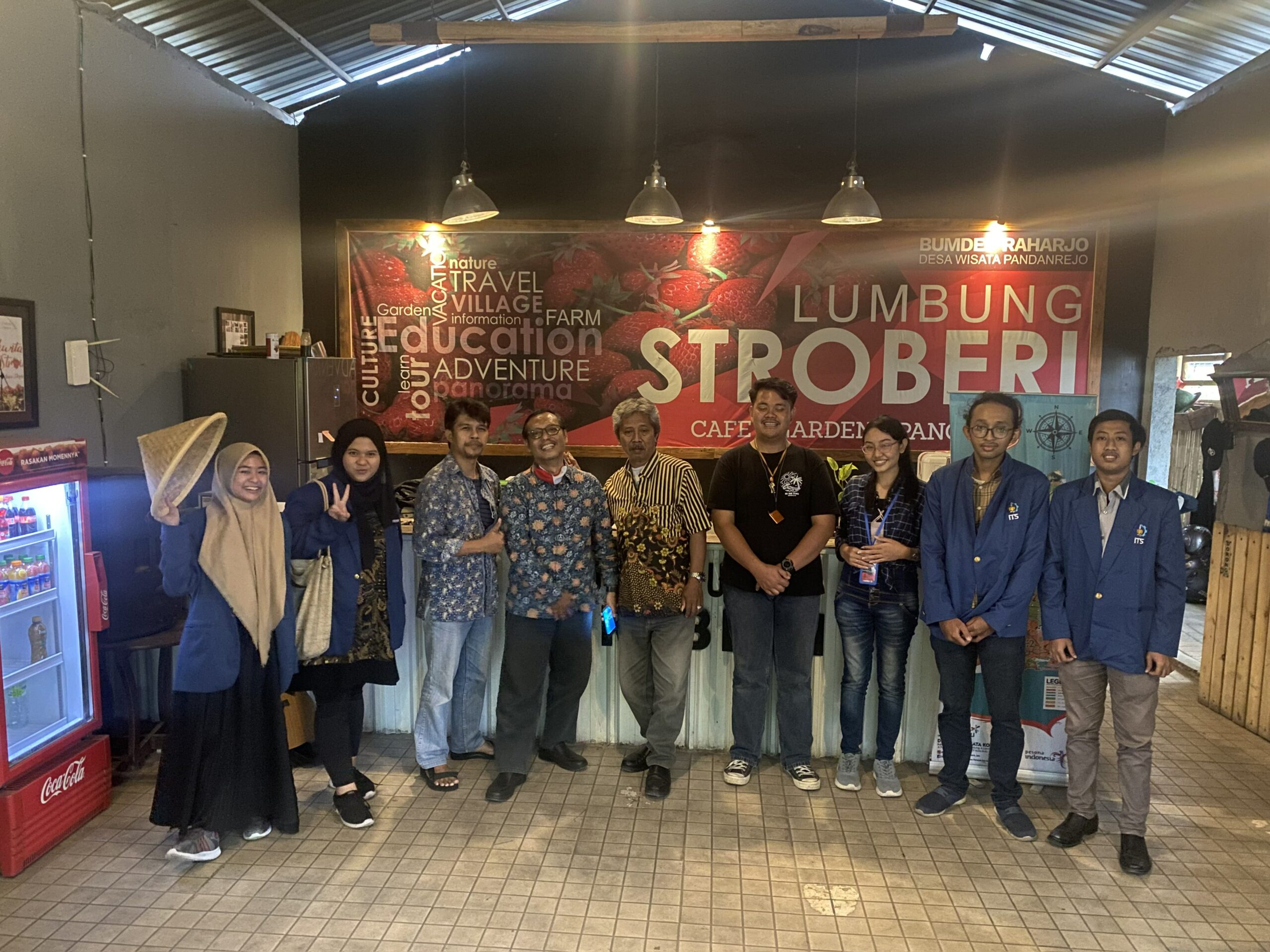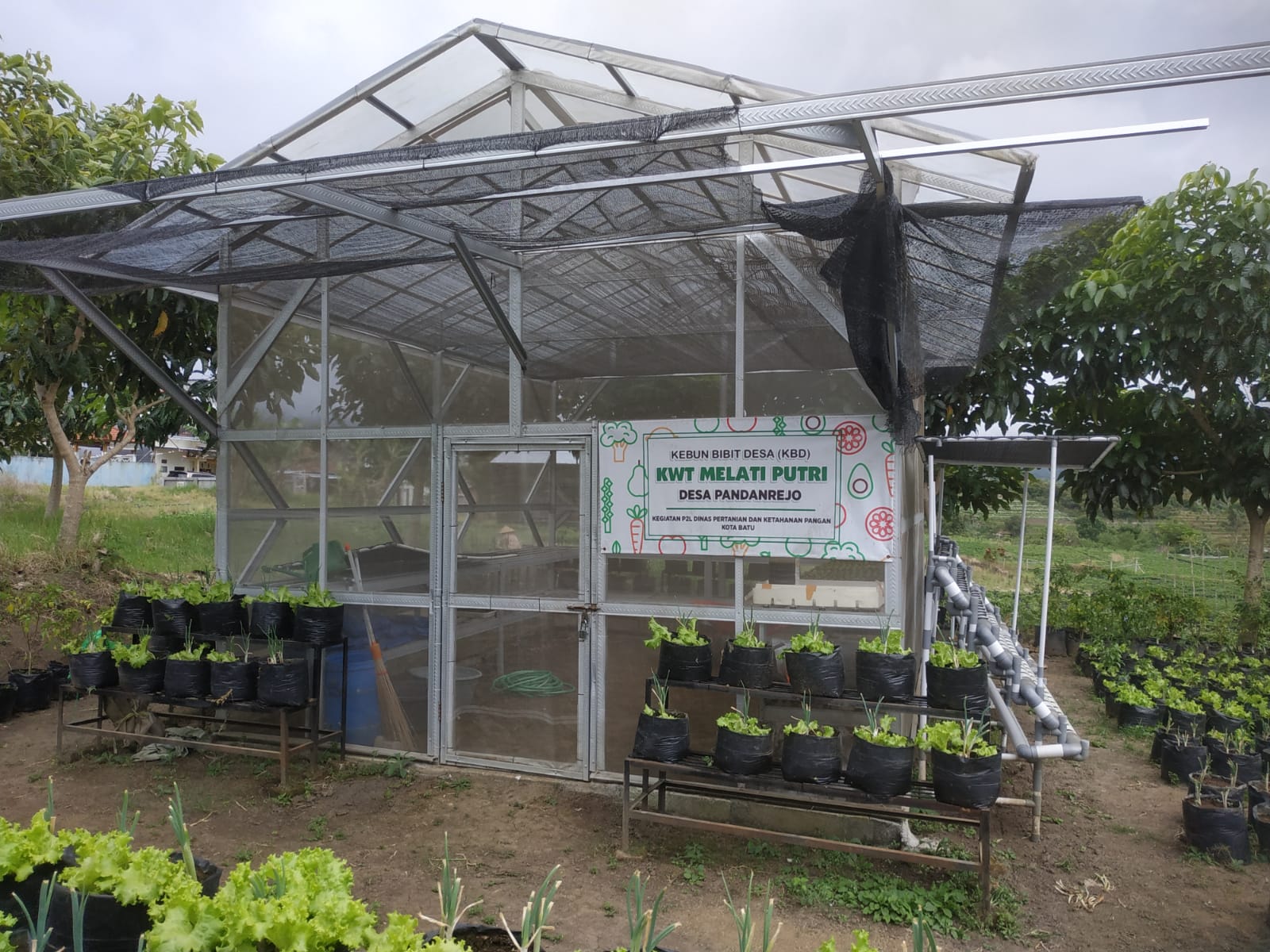Helping Strawberry Farmers, ITS KKN Designs a Smart Greenhouse

The ITS Community Service Team, together with the team supervisor Dr. Arief Bustomi SSi MSi (four from the left) to designs a Smart Greenhouse
ITS Campus, ITS News — Limited supply of electricity and erratic weather in the rainy season makes it difficult for strawberry farmers in the Strawberry Pandanrejo Tourism Village to maintain the quality and quantity of strawberry cultivation before being distributed to consumers. Departing from these problems, the ITS KKN team assisted in designing a smart greenhouse that allows strawberries to grow in any condition.
Chaired by a student from the Department of Physics, Qatrunada Riauwindu, his team also designed a smart greenhouse system equipped with temperature and humidity sensors from the air and soil. The sensor will try to condition the environment in the greenhouse to achieve ideal conditions for strawberry growth, namely at a temperature of 18 to 20 degrees Celsius and a humidity level of 80 to 90 percent. “If the sensor detects a temperature exceeding ideal conditions, the temperature will automatically be lowered until the temperature is at the ideal point,” explained the man from Bekasi.

Pandanrejo strawberry tourism village is a smart greenhouse location
Going deeper, all sides of the smart greenhouse are covered with UV plastic to protect the plants from direct exposure to solar radiation. Not only that but a humidifier is also installed to support the conditioning of the temperature and humidity of the greenhouse. This innovation also allows for all-day light for plant photosynthesis purposes with light sensors and automatic watering.
Still in the process of installing the technology in the greenhouse, sensors are also installed that will assess the maturity of the plants in it. “There are also sensors that can see fruit ripeness based on color and measure plant height to analyze plant growth,” said the 2019 ITS student.
To support these electronic devices running constantly, the ITS Community Service team installed six solar panels with a total capacity of 600 watts. Qatrunada said that the material chosen for the solar panels is a monocrystalline type with an efficiency of up to 15 to 20 percent. “This electricity is mainly used for cold storage for ripe strawberries, so they don’t rot quickly,” he explained.
The ITS KKN team, which Dr. Arief Bustomi SSi MSi supervised, received a positive response from the surrounding community because this electricity assistance can improve the quality of the fruit until it reaches the consumers’ hands. The greenhouse system allows the fruit to continue to grow without being affected by natural conditions. “Hopefully, with the assistance that we sincerely provide, we will be able to have a positive impact on small communities for the development of a better nation,” he concluded. (*)
Reporter: Frecia Elrivia Mardianto
Editor: Muhammad Miftah Fakhrizal
Related News
-
Facilitating Creativity of Students, ITS Information Systems Department Presents CCWS
ITS Department of Information Systems students conduct a discussion in one of the available spaces in the ITS Digital
February 25, 2023 07:02 -
ITS Explores Electrification Cooperation with PT Vale Indonesia
ITS Campus, ITS News — Following up on the Memorandum of Understanding (MoU) with PT Vale Indonesia, Institut Teknologi
February 25, 2023 07:02 -
ITS Reaches Top 7 BRIN Collaborators with 309 Scientific Publications
ITS Campus, ITS News — Institut Teknologi Sepuluh Nopember (ITS) continues demonstrating its commitment to strengthening collaboration in research
February 25, 2023 07:02 -
The Only One from Indonesia, ITS Student Becomes Erasmus+ Scholarship Awardee
ITS Campus, ITS News — Civitas academica of Institut Teknologi Sepuluh Nopember (ITS) has once again contributed to making
February 25, 2023 07:02
